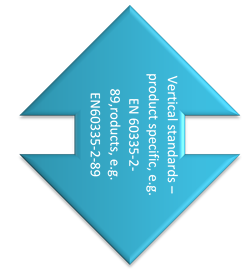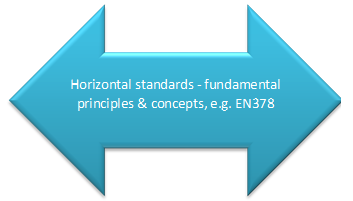22 September 2015
|
 Stephen Benton and Jane Gartshore
Stephen Benton and Jane Gartshore
A standard is an agreed way of doing things. They cover systems, products, components and procedures and are the distilled wisdom of experts with up to date knowledge of their subject and their industry’s needs.
By Stephen Benton and Jane Gartshore of Cool Concerns Ltd
If all refrigeration, air conditioning and heat pump systems complied with relevant standards we would have systems which are safer, more reliable, more energy efficient, leak less and are future proof. But they are often viewed as complicated and many people are unaware of their relevance, importance and value.
By Stephen Benton and Jane Gartshore of Cool Concerns Ltd
If all refrigeration, air conditioning and heat pump systems complied with relevant standards we would have systems which are safer, more reliable, more energy efficient, leak less and are future proof. But they are often viewed as complicated and many people are unaware of their relevance, importance and value.
A legal requirement?
Standards are voluntary, but are there to make life simpler, for example to design and install better RAC systems. Many standards are harmonised with European directives. They are the best and simplest method of complying with these regulations.
In our industry this includes, for example, the Pressure Equipment Directive. EN 378-2:2008+A2:2012 Annex ZA shows the relationship between the standard and the essential safety requirements of the PED. Compliance with EN378 is the simplest way of compliance with most of the requirements of the PED.
In our industry this includes, for example, the Pressure Equipment Directive. EN 378-2:2008+A2:2012 Annex ZA shows the relationship between the standard and the essential safety requirements of the PED. Compliance with EN378 is the simplest way of compliance with most of the requirements of the PED.
Content continues after advertisements
What’s in a standard?
|
Standards follow a standard format – as you would expect! The standard usually includes:
Some standards are split into several parts to make them more manageable and cost effective (they can be bought individually). |
Standards exist at national, European and international level:
BS – British Standard EN – European Standard ISO and IEC – International Standards. |
Keeping standards relevant and up to date
Technical committees are responsible for maintaining standards. For complex or large standards the committee is split into specialist working groups. The groups comprise experts who are usually nominated by industry bodies such as the Institute of Refrigeration or by other organisations with an interest in the standard, such as manufacturers or environmental groups.
Revisions typically occur over a five year period to ensure standards remain relevant to industry and are up to date with regulations, technology and best practice. Outside of the main revision amendments are made.
Always make sure you are referring to the current up to date standard and that it has not been superseded, the best way to check is using the BSI website shop: shop.bsigroup.com
Revisions typically occur over a five year period to ensure standards remain relevant to industry and are up to date with regulations, technology and best practice. Outside of the main revision amendments are made.
Always make sure you are referring to the current up to date standard and that it has not been superseded, the best way to check is using the BSI website shop: shop.bsigroup.com
Our favourite standards
We love standards at Cool Concerns! Stephen Benton is on the review committee for EN378 for example (the revision is now almost complete and should be issued next year, when the cycle will start again). But we also recognise how important they are to the industry, and how much easier our job is when we have standards to follow.
Below is a flavour of our favourites, with information to show you why they are important to us:
Below is a flavour of our favourites, with information to show you why they are important to us:
| Standard | Title | What we like about it |
|---|---|---|
| EN 378 parts 1 to 4 | Refrigerating systems and heat pumps – Safety and environmental requirements | This is THE standard for most refrigeration systems. Systems designed, installed, operated and maintained to this standard are safe, reliable and efficient. Highlights include: - Basic refrigerant information; - PS and over pressure protection; - Maximum refrigerant charge sizes; - Pipe work design and joint types; - Requirements for machine rooms; - Refrigerant leak detection systems; - Repair of systems using flammable refrigerant. |
| ISO 5149 Part 1 to 4 | Refrigerating systems and heat pumps – Safety and environmental requirements | If you are working outside Europe this is the standard for you – it is very similar in scope to EN378. |
| ISO 817 | Refrigerants — Designation and safety classification | The title says it all, and it has just been updated. |
| EN 60335 | Household & similar electrical appliances | EN60335 has over 100 parts! Although the title suggests they are not relevant to commercial refrigeration actually some of them are. They cover, for example, air conditioners, refrigerating appliances, vending machines and motor compressors and are product standards. For example they are relevant for appliances which use up to 150 g hydrocarbon refrigerant. For larger charge sizes EN378 would be the applicable standard. |
| EN 60079 | Explosive atmospheres | Again, a multi part standard, some of which are applicable to hydrocarbon refrigerant systems. We use this standard for area classification (leak simulation testing to determine the extent of a flammable zone in the event of a leak) and for the specification of Ex electrical components. |
| EN 14276 | Pressure equipment for refrigerating systems and heat pumps | We use this to determine the maximum pressure of pipe work, dependent on OD and gauge for pressures up to 64 bar g. |
| EN 13480 | Metallic industrial piping | And this is the standard we use to determine maximum pressure in pipe work above 64 bar g. |
For brevity we have not included the entire standard numbers.
Where to get further information
|
All BS, EN, ISO and IEC standards are available in the UK from the British Standards Institute (BSI): www.bsigroup.com Make sure you read the scope of the standard prior to buying it to ensure it is the one you need. Becoming a member of BSI is usually worthwhile as most standards are then half price.
If you would like help cracking the code of standards email us at [email protected]
|
According to Howard Kerr, Chief Executive of BSI:
“A lot of people think standards are just for big companies because they're complex, expensive tools. Nothing could be further from the truth”. We totally agree – we are a three person company but standards are at the core of our business. They are an essential and cost effective tool. |










